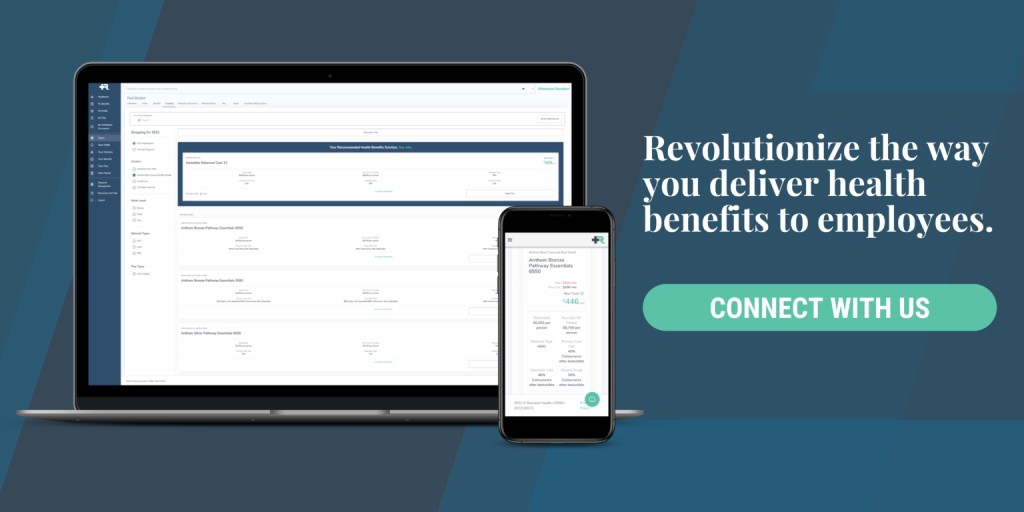Understanding health insurance terms can help you identify the best benefits strategies to cut costs and keep quality care. Because these terms can be so tricky—both for employers and individuals—people usually feel stuck in their health benefits plan.
When evaluating alternative options to traditional group insurance, one term often mentioned is “Minimum Essential Coverage”, referred to as “MEC.” The following is a brief overview of what a MEC is and how it can provide an innovative solution to healthcare.
Quick Definition: What is Minimum Essential Coverage?
Minimum Essential Coverage (MEC for short) is a health insurance product that generally covers preventative medical services, such as vaccinations, checkups and screenings. MECs can be purchased as a standalone product, or they can be combined with various types of healthcare coverage.
1. History of MEC
When the Affordable Care Act was enacted, some new mandates were established. The first was the individual mandate and the second was the employer mandate. Though each of these rules was unique, both included the requirement for qualifying health coverage, or also known as “minimum essential coverage”.
Since its original implementation, the individual mandate has actually been removed with the passing of the Tax Cuts and Jobs Act. However, the large employer mandate, which requires employers to provide “minimum essential coverage” (along with other key elements), still remains intact.
2. What does a MEC include?
MEC plans can vary significantly. It’s important to note that “minimum essential coverage” (MEC) is not the same as a minimum value plan (MVP), which includes 10 essential health benefits. Because of this, MEC plans are very flexibile and can look different from case to case.
Whether it’s a purchased product or a self-funded option, it’s very important to know what you’re actually getting from a MEC. Generally speaking, a minimum essential coverage plan will cover preventative services at no charge.

3. Can you use a MEC alone?
MEC plans are available to purchase on their own by either an individual or by an employer.
A standalone MEC can be useful for a couple reasons. For example, an individual who does not qualify for tax credit discounts on the Individual Marketplace could use a MEC as an alternative for preventative coverage. As an employer, it can be an affordable way to introduce health benefits, and can also fulfill the mandate.
4. Can you combine a MEC with your current plan?
Because a MEC is not an MVP (see above), you can combine a MEC with additional plans and programs.
If an individual is provided a MEC by their employer, they’re still eligible to qualify for Advanced Premium Tax Credits. The Marketplace plan would then be considered primary in the coordination of benefits. Additionally, a MEC plan can be designed as a qualifying HDHP, which means it can be used to pay for medical expenses pre-tax.
5. What’s the best way to use a MEC?
For employers using a group MEC, the employer mandate moves from Part A to Part B of the ALE shared responsibility. This means the “penalty” does not apply to every employee, just those who take tax credits from the Marketplace.
If you’re interested in rethinking health benefits, reach out to our expert team of consultants by emailing [email protected].

Important Notice: Remodel Health does not intend to provide specific insurance, legal, or tax advice. Remodel Health always recommends to consult with your own professional representation to properly evaluate the information presented and its appropriate application to your particular situation.
